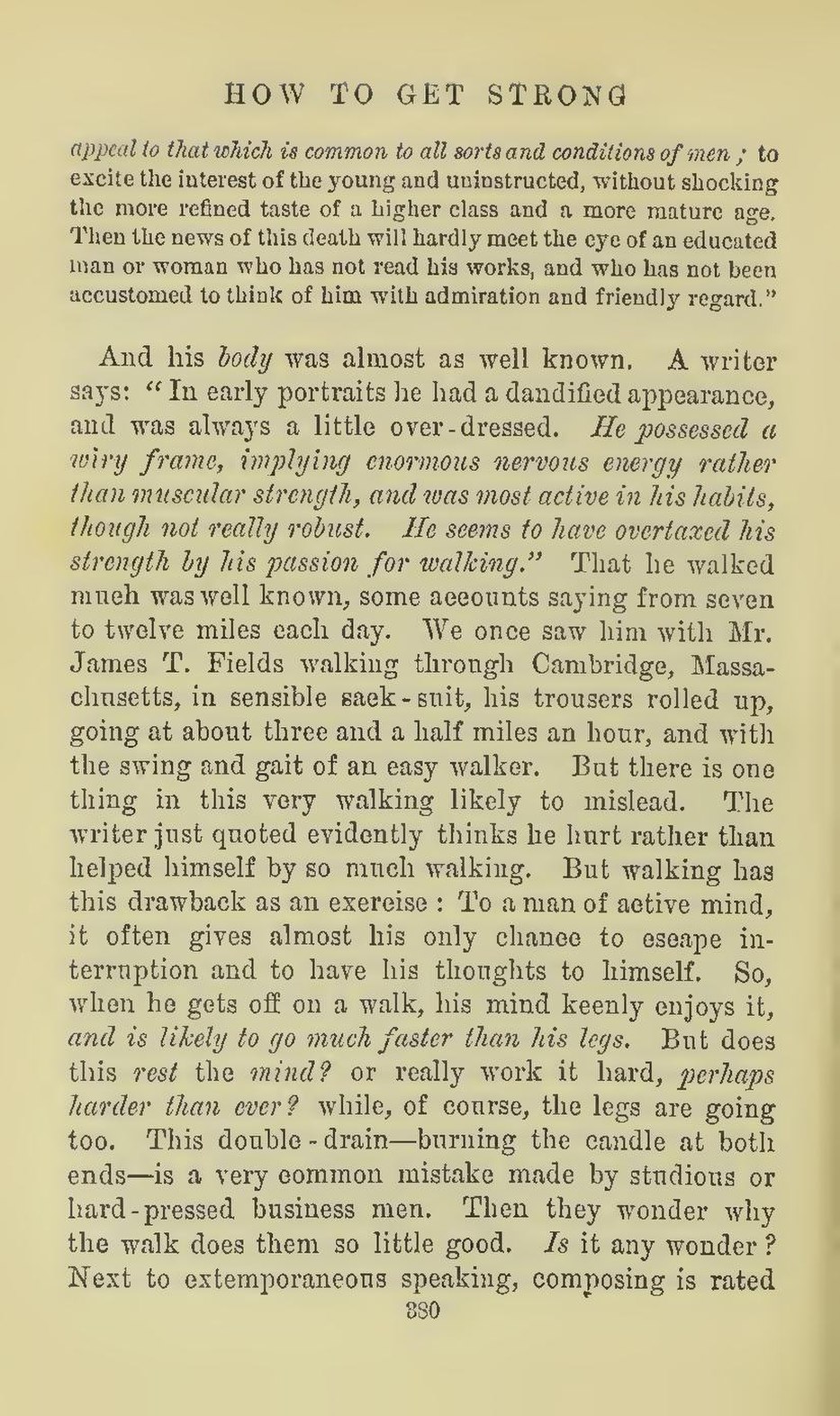HOW TO GET STRONG
And his body was almost as well known. A writer says: "In early portraits he had a dandified appearance, and was always a little over-dressed. He possessed a wiry frame, implying enormous nervous energy rather than muscular strength, and was most active in his habits, though not really robust. He seems to have overtaxed his strength by his passion for walking." That he walked much was well known, some accounts saying from seven to twelve miles each day. We once saw him with Mr. James T. Fields walking through Cambridge, Massachusetts, in sensible sack-suit, his trousers rolled up, going at about three and a half miles an hour, and with the swing and gait of an easy walker. But there is one thing in this very walking likely to mislead. The writer just quoted evidently thinks he hurt rather than helped himself by so much walking. But walking has this drawback as an exercise: To a man of active mind, it often gives almost his only chance to escape interruption and to have his thoughts to himself. So, when he gets off on a walk, his mind keenly enjoys it, and is likely to go much faster than his legs. But does this rest the mind? or really work it hard, perhaps harder than ever? while, of course, the legs are going too. This double-drain—burning the candle at both ends—is a very common mistake made by studious or hard-pressed business men. Then they wonder why the walk does them so little good. Is it any wonder? Next to extemporaneous speaking, composing is rated
380
